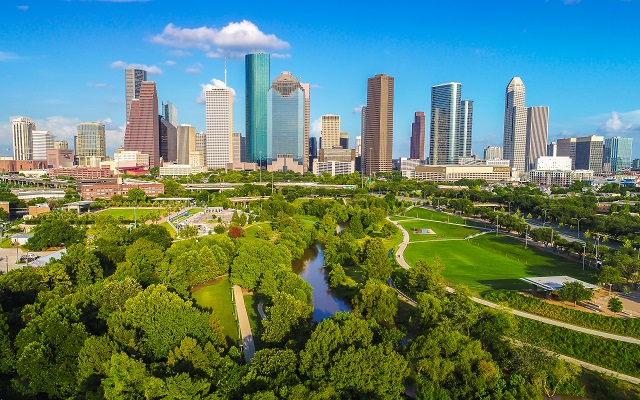Economic Update: Houston Works to Recover from Winter Storm, Makes Progress on COVID-19
Published Feb 25, 2021 by A.J. Mistretta
This month’s winter storm, which wreaked havoc across Texas and left millions without power and water for days, dealt a considerable blow to the Houston region already working to recover from the coronavirus-induced recession. But there is reason for optimism as the COVID-19 picture begins to improve here and elsewhere around the country.
In his monthly economic update this week, Partnership Senior Vice President of Research Patrick Jankowski addressed the winter storm and COVID-19, as well as their respective effects on the regional economy.
“It’s been a very rough year for us, rough both economically and public health wise,” Jankowski said, adding that the winter storm dealt residents - and their psyche - yet another blow.
The storm completely shut down Houston for most of the week of February 15, grinding business to a halt across the region. Temperatures reached a new record low of just 16 degrees and the weather forced shutdowns at power generation plants across the state, leading to widespread blackouts. Texas lawmakers are holding hearings this week in Austin to determine why plant infrastructure wasn’t more resilient against the severe weather and what can be done to ensure such a situation doesn’t occur again.
Jankowski said it’s difficult to quantify the economic impact the storm had on Houston since most economic data doesn’t analyze changes week-to-week. But he said it's clear that hourly workers, as many as 1.8 million individuals in the Houston region, were hit hardest because they simply couldn’t work and collect a paycheck. “This fell heaviest on those who could least afford it,” he said.
Jankowski said the good news is that COVID-19 cases, hospitalizations and deaths are all decreasing in this region and across the country. The ramp up in the vaccination rollout could allow the U.S. to reach herd immunity by late spring or summer, he said. “When we reach that tipping point, we will begin to see the economy really reopen. People will begin to travel more, eat out more frequently, go to baseball games and movie theaters…It also means companies will act on business decisions that have been put on hold.”
But we aren’t out of the woods yet, Jankowski cautioned. He said initial weekly jobless claims are still three times higher than normal, and while some economists are projecting very robust U.S. job growth this year, he’s more pragmatic. “We will see healthy job growth, but not 600,000 jobs a month as some are forecasting.”
The recovery from the COVID-19 recession should be quicker than the Great Recession of 2008 because this one was spawned by a government mandate that restricted activity, Jankowski said. But, he added, what many aren’t factoring into the recovery are the structural changes that have accelerated preexisting trends. “Retail will never be the same again. Movie studios have taken to releasing their films directly to streaming services and bypassing theaters. We will be in a more hybrid work situation and that’s going to have a dramatic effect on the future of business.”
Nearly 60% of the 350,200 jobs lost in the Houston region at the height of the pandemic last year have been recouped, though higher wage jobs are rebounding quicker than lower paying positions.
To see Jankowski's full presentation, members can log into the Membership Portal at the top right of this screen. Get more research and analysis from the Partnership team in the Data section of the site.
 The Houston Report
The Houston Report





















